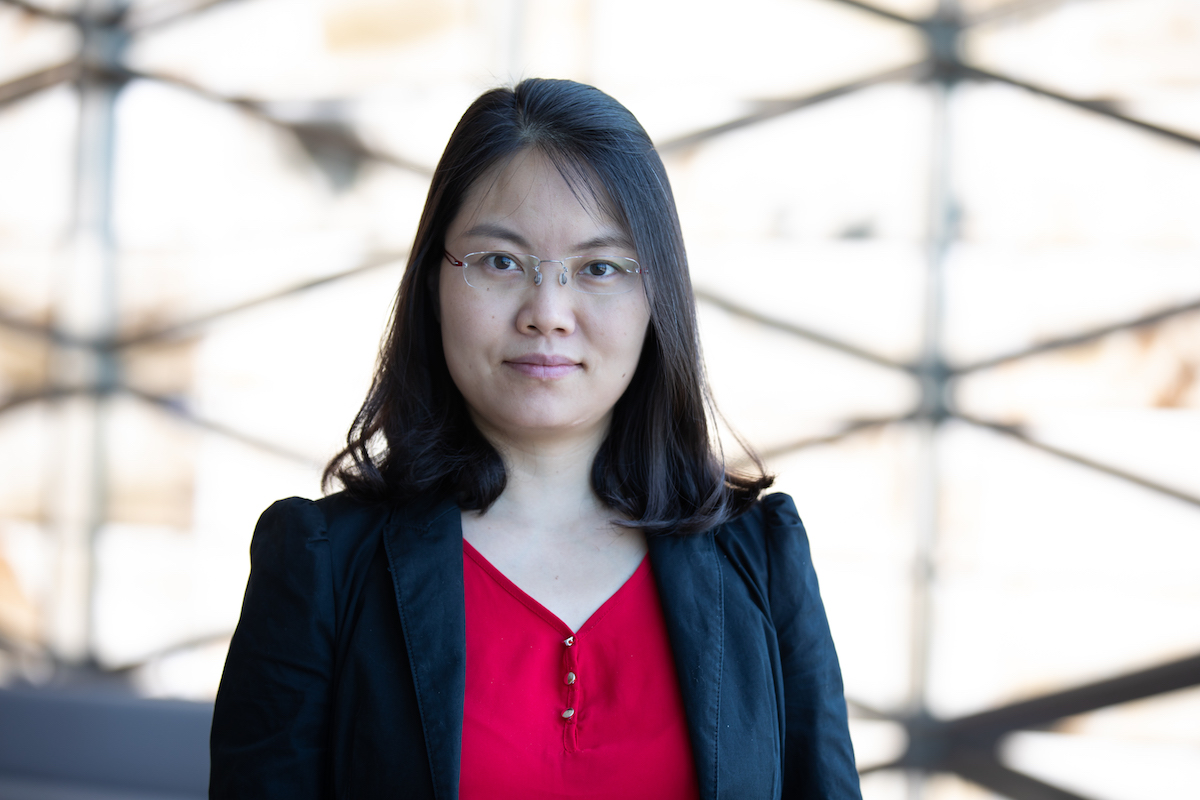KAUST Associate Professor Xiangliang Zhang talks about artificial intelligence

Xiangliang Zhang, KAUST associate professor of computer science, recently gave an invited Early Career Spotlight Talk at the 27th International Joint Conference on Artificial Intelligence and the 23rd European Conference on Artificial Intelligence 2018. Photo by Sarah Munshi.
-By David Murphy, KAUST News
Xiangliang Zhang, associate professor of computer science in the University's Computer, Electrical and Mathematical Science and Engineering division, recently gave an invited Early Career Spotlight Talk at the 27th International Joint Conference on Artificial Intelligence and the 23rd European Conference on Artificial Intelligence (IJCAI-ECAI-18) 2018. During the event—which was held in Stockholm, Sweden, from July 13 to 19—Zhang and 21 international peers presented on all areas of artificial intelligence (AI).
Zhang and her fellow young researchers were invited to present at the conference based on nominations from the IJCAI Senior Program Committee. Her talk on July 17, which was entitled "Mining Streaming and Temporal Data: from Representation to Knowledge," summarized her previous and recent research work regarding mining data streams.
"I am really honored to have been invited to give an Early Career Spotlight Talk at the most prestigious conference on AI. This year, there were about 2,700 attendees at the conference from both industry and academia and my talk attracted a large number of audience members," Zhang noted.
"All the work I presented was completed at KAUST. I am very happy that KAUST [and I] have been recognized more by researchers in the domain of AI. Computer science—[and] especially AI—is a fast-growing area. We should often refresh ourselves with recent developments in the domain," she added.

Xiangliang Zhang, KAUST associate professor of computer science, recently presented on her work in artificial intelligence (AI) at an international conference in Sweden. 'Computer science—[and] especially AI—is a fast-growing area,' she noted. Image courtesy of Shutterstock.
Before joining KAUST, Zhang obtained her M.S. and B.S. degrees in computer science from Xi'an Jiaotong University, China, in 2006 and 2003, respectively. In 2010, she earned her Ph.D. degree in computer science from University of Paris-Sud, France, and was a European ERCIM research fellow at the Norwegian University of Science and Technology.
At KAUST, Zhang's research focus is to develop effective algorithms in machine learning and data mining and to apply them to discover knowledge from complex and large-scale data for diverse AI applications. She is currently directing the KAUST Machine Intelligence and kNowledge Engineering (MINE) group. The MINE research group works towards pushing the boundaries of knowledge discovery from large-scale and complex data.
"Our research group has established new routes to efficiently explore the data and accurately find the latent patterns that are useful for understanding the data, for analyzing it in order to obtain new insights and for intelligently applying knowledge for decision making," Zhang stated.

KAUST Associate Professor Xiangliang Zhang's research group at the University works on developing effective algorithms in machine learning and data mining to discover knowledge from complex and large-scale data for artificial intelligence applications. Image courtesy of Shutterstock.
Committed to knowledge discovery
Zhang is committed to her research focus regarding knowledge discovery and data mining (KDD) and believes that KDD has been rightly accredited as a cornerstone of scientific research.
"In various scientific fields, the research process involves exploration, analysis and evaluation based on a set of data. With my students, we have developed a dataset search engine called Delve which helps researchers on finding data to use and literature related to targeting data sets," Zhang said.
"Our system not only supports dataset search but also links datasets to published research papers, which is a very challenging problem to resolve and has great value on facilitating researchers' literature review. The system has been available to the public for more than one year and has been attracting increasing attention from various domains," she concluded.
Related stories:
- Shaheen sets subsurface mapping world record
-
Teaching algorithms to see
-
KAUST team finds solution to staff transfers at the Saudi Ministry of Health
- Award-winning algorithm takes search for habitable planets to the next level
-
KAUST master's degree student wins best poster award at Data Science Summer School

